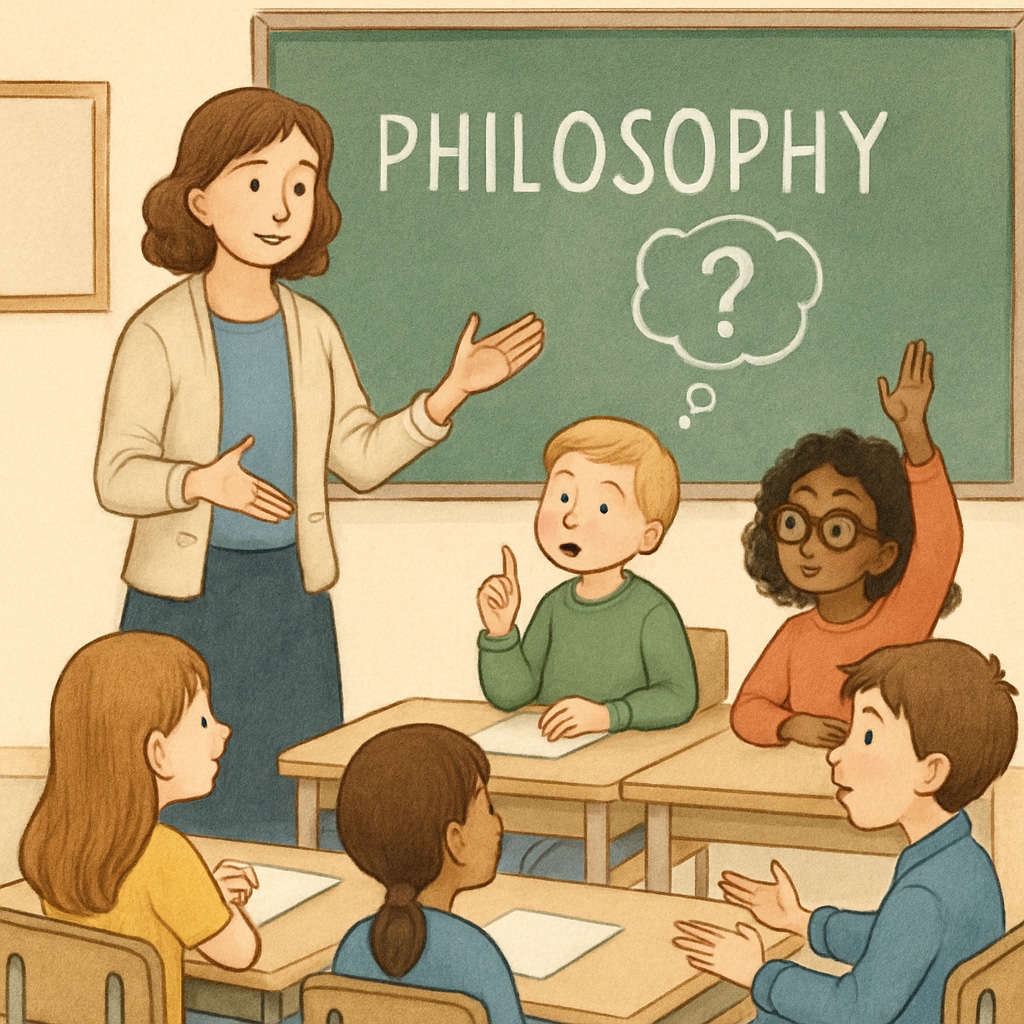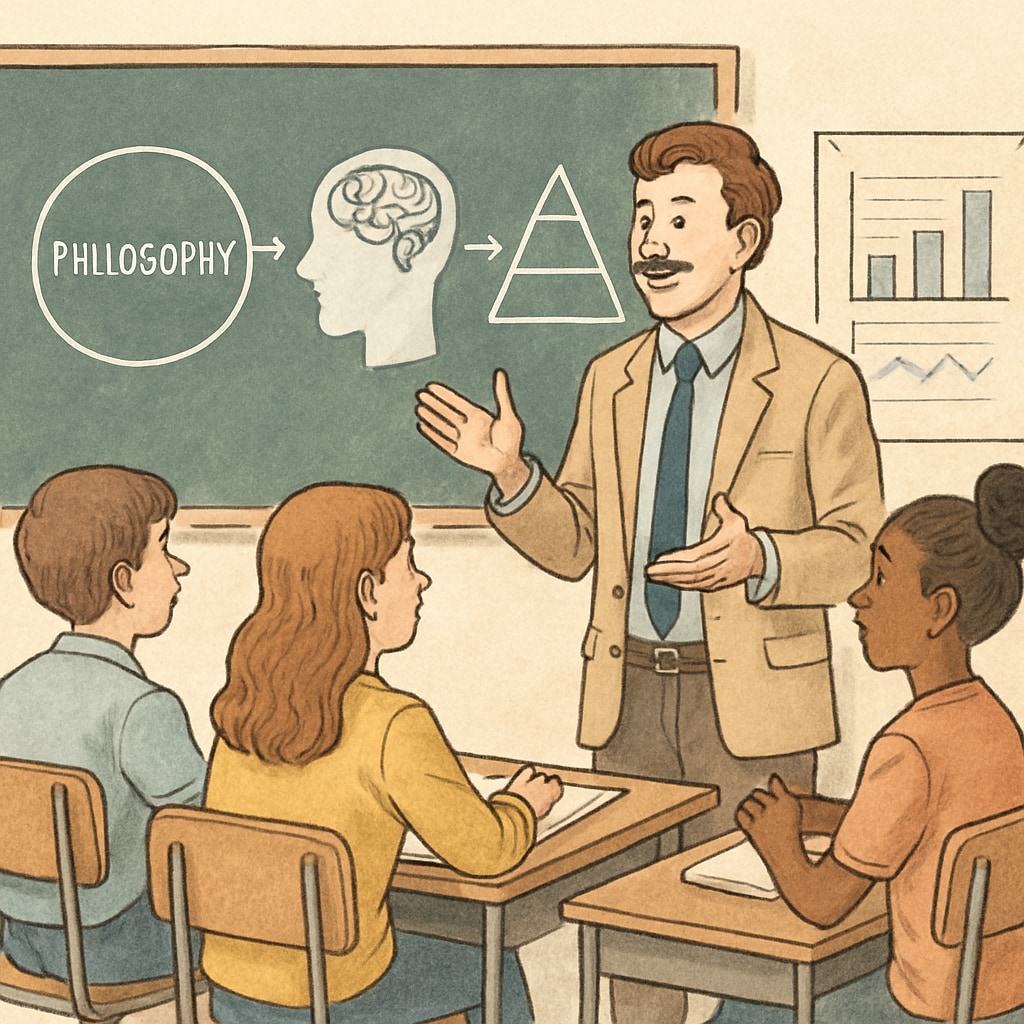The role of social experiments, philosophy teachers, and volunteers has gained renewed attention as educators and researchers explore innovative ways to enrich K12 education. Philosophy, often overlooked in primary and secondary education, holds immense potential to transform the way students approach learning and decision-making. By incorporating philosophical thinking into the curriculum, educators can foster critical thinking, problem-solving abilities, and moral judgment skills in young learners. This article outlines the value of philosophy in education and invites philosophy teachers to participate in experimental studies to test its impact.
Why Philosophy Matters in K12 Education
Philosophy is more than abstract theories; it is a practical tool to enhance intellectual and emotional capabilities. Introducing philosophical concepts in K12 classrooms can help students develop critical thinking, analyze complex problems, and approach ethical dilemmas with clarity. Studies have shown that exposure to philosophical discussions improves reasoning skills and encourages students to think independently. For example, the Philosophy for Children (P4C) initiative has demonstrated measurable benefits in boosting literacy and social awareness among students.
Moreover, philosophical education nurtures empathy and respect for diverse perspectives. By engaging in debates and discussions, students learn to articulate their thoughts while considering opposing viewpoints. In an era dominated by technological advancements and global interconnectedness, such skills are increasingly vital.

Social Experiments and Volunteer Philosophy Teachers
To fully understand the impact of philosophical education on K12 students, researchers are conducting social experiments. These studies aim to measure the effects of introducing philosophy into traditional curricula. Volunteer philosophy teachers play a crucial role in these experiments by designing lessons, facilitating discussions, and observing student progress.
Researchers are particularly interested in whether philosophy can improve students’ decision-making abilities, emotional intelligence, and creativity. For example, one ongoing study examines how ethical dilemmas presented during class discussions influence students’ moral reasoning over time. Volunteer educators bring their expertise and passion to these experiments, helping bridge the gap between academic research and practical application.
If you are a philosophy teacher interested in contributing to these studies, your involvement could have a lasting impact. By volunteering, you will not only advance educational research but also help shape the future of K12 learning practices.

How to Get Involved
Participating in these experiments is simple but highly impactful. Philosophy teachers can volunteer by reaching out to organizations conducting such studies or by collaborating with schools interested in piloting philosophical curricula. These opportunities often include training sessions to help educators adapt their teaching methods for younger students.
In addition, many research projects offer resources such as pre-designed lesson plans, discussion prompts, and evaluation tools. Teachers can also contribute by sharing their own methodologies and insights, enriching the experimental process. For more information on active research programs, visit reliable sources like Britannica’s philosophy education section.
As a volunteer, you will be part of a growing movement to redefine education. Your expertise and enthusiasm can inspire young minds to think critically, act ethically, and explore the world through a philosophical lens.
The Future of Philosophy in Schools
The inclusion of philosophy in K12 education is not just a trend; it is a transformative approach to learning. Social experiments involving philosophy teachers are paving the way for evidence-based changes in curricula worldwide. As a result, schools may increasingly adopt philosophical instruction to complement traditional subjects like mathematics, science, and literature.
By participating in these experiments, you contribute to a vision of education that prioritizes intellectual curiosity, ethical consideration, and problem-solving skills. Philosophy teachers and researchers together can create a blueprint for integrating philosophical thinking into classrooms, ensuring that students are equipped for the challenges of the modern world.
If you are ready to make a difference, consider becoming a volunteer for these groundbreaking studies. The future of education starts with innovative thinkers like you.
Readability guidance: This article uses concise language, clear transitions, and short paragraphs to ensure accessibility. Lists, external links, and relatable examples are incorporated to enhance reader engagement.


